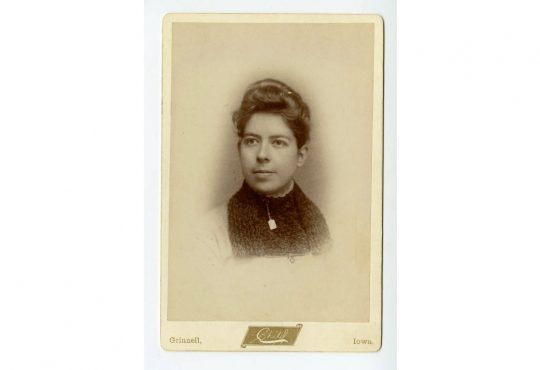That peculiar human desire to control what confuses us is steadily gaining in popularity. We’ve all experienced this feeling at some point—the tendency to result in absolute, merciless tyranny when dealing with train connections, perhaps the occasional bus schedule. Or, maybe even others’ religious behavior. This has certainly become a favorite among University administrations.
About a month ago, Hampton University student Melonna Clarke went through the embarrassing experience of being denied access to a college ID on the premise of what she was wearing.
“I went to go get my ID in the police office, and I was in the front of the line and I was told that I would not be able to get my ID because I wear a hijab,” Clarke stated in a NewsChannel 3 report.
The school’s dress code policy lists that any “caps or hoods for women” are prohibited. Even though school policy states that headgear worn as religious adornment could be considered an exception to their dress protocol, paperwork is still required for such a form of public display. In order for her to eventually obtain any sort of identification, she was required to secure a letter from the school chaplain and her mosque.
“If I am ever stopped and asked who I am, what I am doing on campus, I want to have all the proof that I can that I am a student here because I don’t want to have to go through anything like I went through in the first place, and I don’t want other people to have to go through that either,” Clarke said.
I would be personally offended if she wasn’t given a full apology for the delay of her campus ID. What a cripplingly discomforting scenario—that a college student would essentially need written testimony to obtain her own university credentials.
And yet, Melonna isn’t the only academic undergraduate who has encountered exasperating guidelines verging on the authoritarian this year.
Even Birmingham Metropolitan College, a highly respected university in Britain’s West Midlands, disallowed Muslim women from wearing a headdress on campus as it may prompt a “security risk.”
This is, obviously, sound justification—I’m glad someone’s mentioned it. When I see a woman dressed in a hijab, the first thing that springs to mind is, “What an appropriate storage for a musket,” followed by, “the gat strapped to her neck must get a bit itchy.”
Fortunately, the college overturned this ban after a torrent of protests.
It’s odd that so many people should approach the hijab, or any woman clothed in a headscarf, with this measure of preliminary caution—as if she could jeopardize the entirety of academia if she so much as enters an establishment with a headscarf.
A study conducted by the Intercollegiate Studies Institute found that those who had completed at least a bachelor’s degree were more likely than those who had only attained a high-school diploma to take a liberal stance on certain controversial social issues.
And yet, while college courses and professors may be lecturing a tolerant perspective of the world, the institution itself may not behave as charitably. It may behoove university faculty to take a more active role by pledging a greater tolerant disposition—not only for the students, but for their own conduct as well.
Not all colleges can live up to Puget Sound standards. The school that promotes three (possibly more) mission statements (all consisting of more than four bullet pointed goals each) for the sake of cultural differences. It’s very evident how much energy is put towards spreading a cultural tolerance on campus.
We have Equality Advisory Groups, Anti-Discriminatory Programs, Cultural Training Sessions, Diversity Leadership Training and an Office of Diversity and Affirmative Action.
However, no matter how many mission statements comprise a student cultural affairs website, some sort of bigotry will persist in a community.
“It’s a symbol of protection. Modesty is good in our culture. It lets guys know that she wouldn’t like to be looked at in that way; she isn’t a sexual object. The hijab says ‘respect me,’” Saba Khalid said. Khalid is a third-year biomedical engineering student from USC. “Many people don’t understand what the hijab represents in our religion—it’s not something to be afraid of.”
The hijab is banned in most French public schools and a few European nations are slowly guiding legislation to follow suit. In Turkey and Tunisia, the hijab is outlawed in government buildings and school sites. In countries where the hijab is banned, the hijab is viewed as a symbol of gender repression.
However, this isn’t necessarily true.
In fact, many Muslim women view it as a choice—an incredibly independent one, at that. To put it simply, the hijab isn’t meant to be worn lightly. It’s an incredibly personal and well thought out decision. It is, essentially, wearing your religion on your sleeve.
Because a hijab is a very overt representation of Islam culture, many women face public discrimination on a daily basis—or in this case, excessive anticipation and a general misunderstanding.
The bitter irony of these unfortunate accounts is the fact that Hampton and Birmingham school policy is trying to promote exactly what the hijab is intended to signify.
The headscarf protects a woman’s image and privacy in society. It is not a burden but a completely autonomous choice. It’s a decision that shouldn’t be met with disregard, but with respect.
The real security risk is the infringement on a woman’s right to exercise her religion freely. Before anyone dictates policy, one shoould pursue a measure of understanding on the subject.
Blunders like this could be easily avoided if our leaders put in a bit more effort. Tyranny is best left for pesky train tickets.






